BHB celebrates World Stroke Day with free health screenings for everyone
Thursday 26 October 2023: Are you at high risk for having a stroke? You will be able to find out as Bermuda Hospitals Board (BHB) celebrates World Stroke Day on Monday 30 October.
“We will be offering free health screenings to the public from 11am to 4pm on Monday in the main lobby of King Edward VII Memorial Hospital (KEMH),” said BHB Chief of Staff Dr Wesley Miller. “Staff from our Primary Stroke Centre will conduct a stroke risk assessment for attendees at the health screenings and will provide each of them with a Stroke Risk Scorecard. Blood pressure, pulse testing and blood sugar are the screenings that will be done. We are pleased that the Bermuda Diabetes Association has partnered with us in respect of blood sugar testing.”
Stroke is an epidemic in Bermuda. It can have debilitating effects – not just to the person who has experienced the stroke, but also to their family. BHB Consultant Geriatrician Dr Srinath Meadipudi was Stroke Director of Stockport NHS Foundation Trust in Manchester, UK before he joined BHB last year. He explains exactly what happens in a stroke, and details the signs and symptoms in the article below:-
Every October the world comes together to observe World Stroke Day, a day dedicated to increasing awareness about stroke risks and the critical importance of stroke prevention and timely treatment.
Stroke, often referred to as a “brain attack,” occurs suddenly when the blood flow to the brain is compromised, depriving it of oxygen. It is a condition that ranks among the leading causes of death and disability in developed countries. Mini strokes, called transient ischemic attacks (TIAs), are caused by a temporary blockage that disrupts the blood supply to a particular part of the brain. The symptoms are the same as a stroke, but fully resolve within 24-hours. The good news is that strokes are often preventable, and with swift medical intervention, their devastating effects can often be minimised.
Strokes come in two main types: ischemic and haemorrhagic. Ischemic strokes, which are the most common, occur when a blood clot blocks a blood vessel supplying the brain. Haemorrhagic strokes, although less frequent, are equally dangerous and result from bleeding within the brain tissue, typically due to a ruptured blood vessel.
Strokes result in reduced oxygen supply to the brain causing brain cells to die very quickly. There are billions of brain cells and when stroke occurs, approximately 2 million of them are lost every minute. The window of opportunity for effective stroke treatment is narrow but crucial. Prompt medical attention is the key, as a life-saving procedure called thrombolysis can dissolve the clot and restore blood supply to the brain. However, this therapy must be administered within 4.5 hours of the onset of symptoms, with better recovery if given as early as possible.
A major risk factor for strokes is atrial fibrillation (AF), a condition characterised by an irregular heartbeat. AF can predispose individuals to the formation of blood clots in the heart, which may travel to the brain and cause blockages in blood vessels there. Notably, some AF patients experience palpitations, while others may not have noticeable symptoms until an electrocardiogram (EKG) reveals the condition. Therefore, regular pulse checks are essential, particularly for individuals at risk.
People with heart conditions and overactive thyroid gland problems are at increased risk of developing AF. They should make regular medical check-ups and heart health management a priority.
Strokes are often preventable through adopting a healthy lifestyle. This entails quitting smoking, moderating alcohol intake, maintaining an ideal weight, being physically active, adhering to a healthy diet, managing stress and effectively controlling health conditions like diabetes, high blood pressure and high cholesterol. For individuals with AF, proper medication management to prevent developing a clot is crucial.
While strokes are commonly associated with older age, they can affect individuals of any age. Where there is a family history of strokes under the age of 60, genetic factors may play a role, necessitating proactive measures and careful risk assessment in younger individuals presenting with stroke symptoms.
BHB has established a Primary Stroke Centre at KEMH, which offers state-of-the-art facilities and clot-dissolving treatment to eligible patients arriving within 4.5 hours of experiencing stroke symptoms.
Additionally, for those patients who are not suitable for clot busting treatment, the Stroke Centre has a clinical affiliation agreement with The Johns Hopkins Hospital in Baltimore, Maryland where our patients are considered for a specialised procedure known as thrombectomy. Thrombectomies are aimed at removing clots from blood vessels in the brain.
Early recognition of stroke symptoms is of paramount importance. Even if the symptoms seem to resolve, medical evaluation is still vital, as the risk of a subsequent stroke remains high.
BE FAST campaign: A Life-Saving Acronym
The BE FAST campaign provides a valuable tool for remembering the signs of a stroke and the urgency of action. BEFAST stands for:
- Balance: Is there a sudden loss of balance or coordination?
- Eye movements: Are there problems with vision, like double vision or partial blindness?
- Facial weakness: Does the face droop on one side when smiling?
- Arm weakness: Can both arms be raised equally?
- Speech difficulty: Is speech slurred, or can a simple sentence be repeated correctly?
- Time: If any of these signs are observed, it’s time to call 911 without delay.
Strokes are life-altering and all too often, life-threatening events. Yet, with knowledge and timely action, they can be prevented, and their impact reduced. By embracing a healthy lifestyle, understanding the risks, and being vigilant about stroke symptoms, we can collectively reduce stroke incidence and improve outcomes for those affected.
As we observe World Stroke Day, let us remember that knowledge is our most powerful tool for creating a healthier future and time is of the essence in stroke treatment. Together, we can make a significant impact on stroke prevention and care.
-ends-

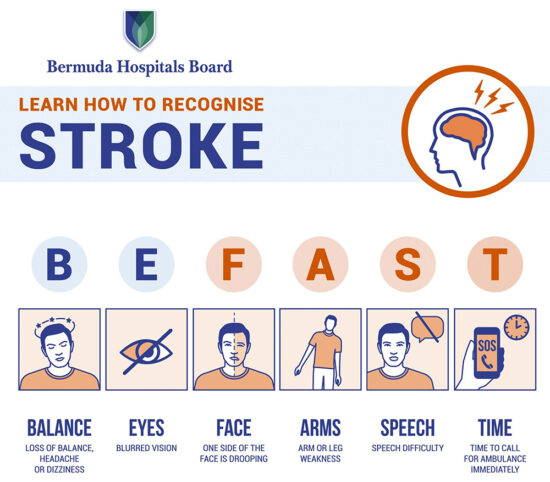
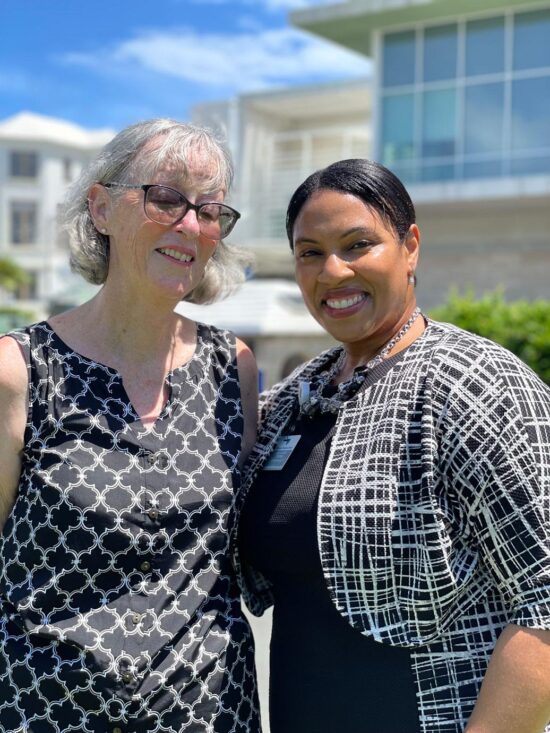
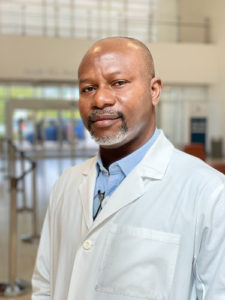 “Every second counts when treating someone who is experiencing a stroke,” said BHB consultant neurologist Dr Kehinde Kolapo. “We really need everyone on the island to recognise when someone is having a stroke, and to get them to the hospital right away.
“Every second counts when treating someone who is experiencing a stroke,” said BHB consultant neurologist Dr Kehinde Kolapo. “We really need everyone on the island to recognise when someone is having a stroke, and to get them to the hospital right away.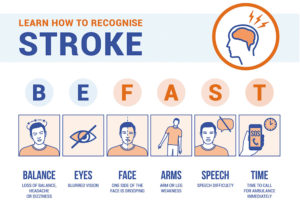 “BE FAST. These two words can really help everyone remember the symptoms.
“BE FAST. These two words can really help everyone remember the symptoms.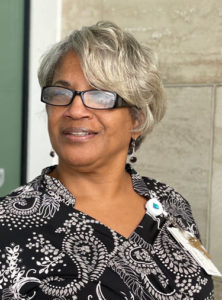 “We are tackling prevention by educating the public,” said VP KEMH Clinical Operations Sita Ingram, a member of the Primary Stroke Centre Working Group. “BE FAST is the message we need every resident to know and adhere to.
“We are tackling prevention by educating the public,” said VP KEMH Clinical Operations Sita Ingram, a member of the Primary Stroke Centre Working Group. “BE FAST is the message we need every resident to know and adhere to.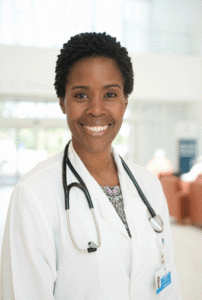 At its peak, 14% of those who experienced a stroke were able to receive a clot-busting drug that increased their chances of fully recovering. Not all stroke patients are eligible to receive the drug.
At its peak, 14% of those who experienced a stroke were able to receive a clot-busting drug that increased their chances of fully recovering. Not all stroke patients are eligible to receive the drug.